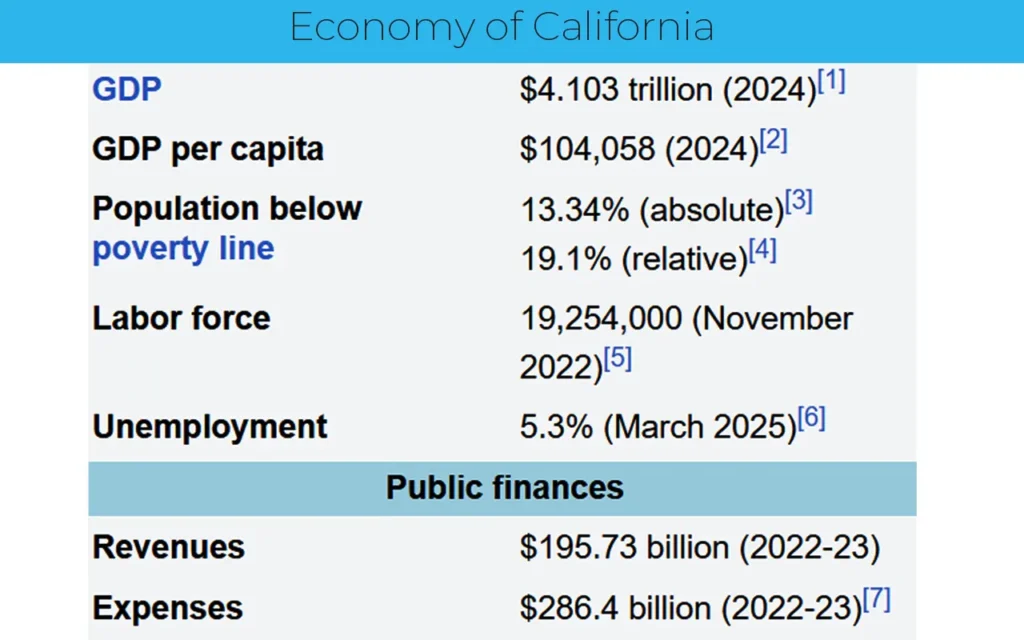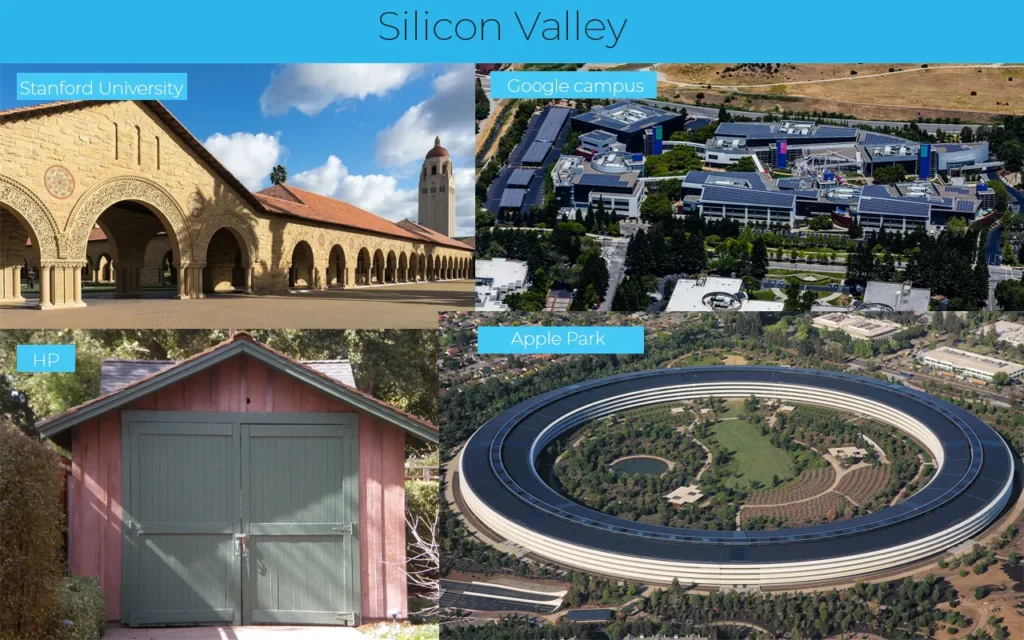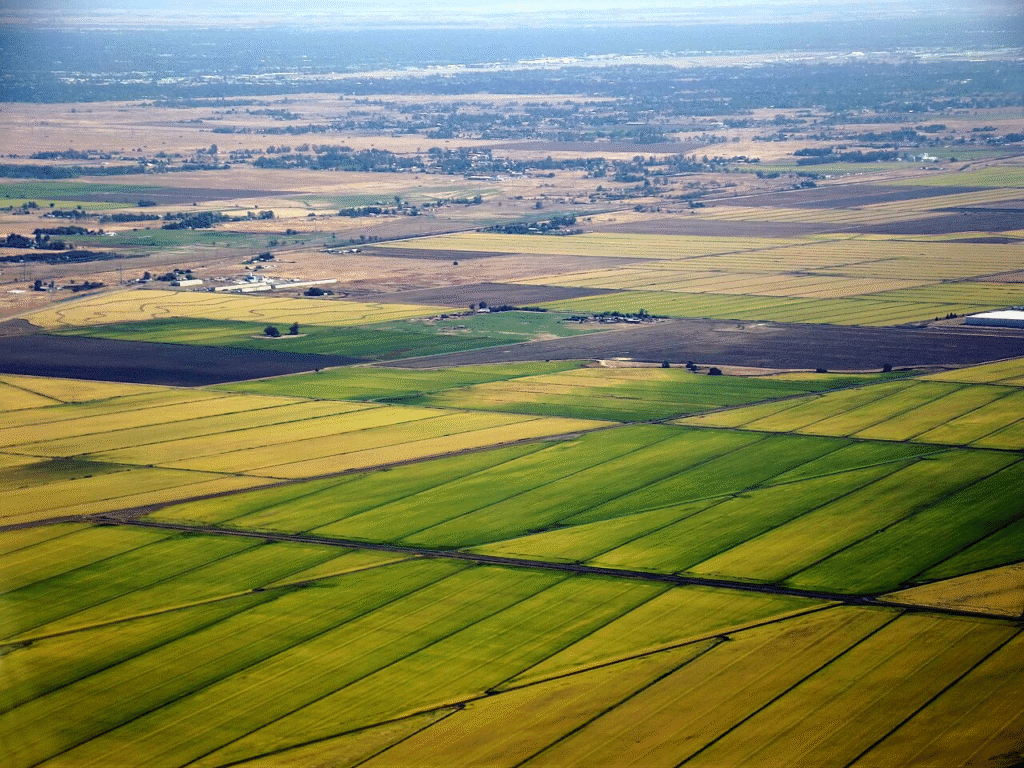Discover why California ranks as the 5th largest economy in the world. From Hollywood to Silicon Valley, agriculture, trade, and innovation — here’s what makes California so rich.
California’s Economy Size (World’s 5th Largest)
When people think of rich places in America, they picture Wall Street in New York or oil money in Texas. But here’s the shocker — California, on its own, is the fifth-largest economy in the entire world. If CA were a country, it would sit right between Germany and India in terms of GDP. That’s bigger than the entire economies of Canada, Brazil, or Russia.
So what’s driving this? It’s not just one industry. California’s wealth is spread across technology, entertainment, agriculture, and international trade. The Golden State pulls in over $4 trillion annually, thanks to its ability to combine brains, land, and lifestyle. Silicon Valley churns out billion-dollar startups, Los Angeles exports culture and movies to every corner of the globe, and the Central Valley produces much of America’s fruits, vegetables, and nuts.
California’s economy is also about people. With nearly 40 million residents, it has the largest state population in the U.S., creating a massive workforce and consumer market. More people equals more spending, more talent, and more innovation. And yes, more billionaires.

But here’s the twist — despite being super rich, The state also struggles with high poverty and cost of living. It’s a state of extremes, where you can find Tesla’s headquarters and struggling families within miles of each other. Still, no matter how you cut it, the sheer size of California’s economy makes it a financial giant that the rest of the U.S. — and even the world — can’t ignore.
Content Table
Tech Titans: How Silicon Valley Powers California’s Wealth
When people think of California’s money, one word usually pops up: Silicon Valley. This region, tucked between San Francisco and San Jose, is home to some of the biggest companies on the planet. Think Apple, Google, Facebook (Meta), Tesla, Netflix, and Intel. These giants aren’t just successful; they are worth trillions of dollars combined. That’s more than the GDP of many countries!
So why does this matter? Well, tech companies bring in huge tax revenues, pay high salaries, and attract the world’s smartest talent. Engineers from India, China, Europe, and all over the U.S. move here, creating a nonstop cycle of innovation and money flow. Every new startup hopes to be the next Google, and investors pump billions into these ideas, which fuels even more growth.

It’s not just the tech offices either. The real estate market booms around Silicon Valley because employees with six-figure incomes need housing. This, in turn, makes property owners richer and boosts California’s economy even more.
But here’s the twist: some critics argue that California’s dependence on tech is risky. If a big downturn hits, or AI shifts jobs drastically, the state could see cracks in its wealth. Still, for now, tech is the engine that never sleeps, pulling in money, talent, and global attention every single day.
Hollywood & Entertainment: California’s Global Money Machine
When people around the world think of CA, they picture Hollywood signs, movie stars, red carpets, and billion-dollar blockbusters. And it’s not just glitz — entertainment is one of the state’s biggest wealth creators.
Hollywood is the epicenter of global film and television production. Every Marvel movie, every Netflix series filmed in Los Angeles, every Oscar-winning drama — they all bring in billions of dollars. The industry fuels jobs for actors, directors, producers, set designers, editors, and thousands of behind-the-scenes workers. Even tourism benefits, since fans flock to see the Walk of Fame, Universal Studios, and Hollywood Boulevard.

But it’s not just movies. CA is home to music giants too. Think of Interscope, Capitol Records, and countless studios in L.A. where legends like Dr. Dre, Katy Perry, and Billie Eilish recorded global hits. Add to that the explosion of streaming platforms like Netflix, Hulu, and Disney+, all headquartered or deeply rooted in California. These companies rake in subscription money from hundreds of millions of people worldwide, and much of that wealth circles back into California’s economy.
Then there’s the lifestyle economy Hollywood fuels: fashion, luxury cars, restaurants, paparazzi media, and celebrity-driven brands (like Rihanna’s Fenty or the Kardashians’ businesses). Each one feeds into California’s identity as the world’s entertainment capital, making it not just culturally influential but financially
Agriculture & Food Exports: California Feeds the World
You might picture only beaches and Hollywood stars. But CA is America’s farmland powerhouse. The state produces more than one-third of the vegetables and two-thirds of the fruits and nuts grown in the United States. That means every time you bite into an almond, strawberry, grape, or avocado, chances are it came from California.
California’s Central Valley alone is bigger than some entire states. This stretch of fertile land pumps out crops worth over $50 billion a year. Almonds, pistachios, and grapes top the list, but the state also dominates in dairy, citrus, strawberries, lettuce, and wine. In fact, California’s wine industry alone generates $40+ billion and is a global status symbol. Napa and Sonoma are names recognized worldwide.

Why does this matter for wealth? Because California isn’t just feeding itself — it’s feeding the globe. Huge amounts of produce are exported to Asia, Europe, and Latin America, making California a critical player in international trade. Even fast food chains, grocery stores, and restaurant chains across the U.S. depend on California farmers.
Of course, agriculture comes with challenges. Droughts, water rights battles, and climate change put pressure on farmers. But innovation helps. From drip irrigation to tech-driven farms, California continues to push the boundaries of modern agriculture.
Tourism & Lifestyle Economy – Disneyland, Beaches, Wine Country, National Parks
It’s also a dream destination for travelers worldwide. Every year, more than 250 million tourists visit the state, pumping over $150 billion into its economy. That’s bigger than the entire GDP of some countries!
What makes California such a magnet? It’s the lifestyle mix:
- Disneyland & Theme Parks – The “Happiest Place on Earth” in Anaheim has been pulling families from all over the globe since 1955. Add in Universal Studios Hollywood, LEGOLAND, and SeaWorld, and you’ve got billions in ticket sales, hotels, and merchandise.
- Beaches & Coastline – From Malibu to Santa Monica, Venice Beach to Laguna, California’s coastline defines the “California dream.” Surfing, beach culture, and oceanfront tourism generate massive revenue for hotels, restaurants, and local businesses.
- Wine Country – Napa and Sonoma aren’t just for wine lovers — they’re luxury destinations. With tours, tastings, fine dining, and high-end resorts, California wine country adds billions to both tourism and agriculture.
- National Parks & Nature – Yosemite, Sequoia, Death Valley, and Joshua Tree are global icons. Millions of visitors flock to hike, camp, and experience nature, creating steady tourism jobs and income.
Beyond attractions, California sells a lifestyle: sunshine, fitness, wellness, celebrity culture, and outdoor adventures. Tourists spend big on hotels, dining, shopping, and experiences, and the ripple effect spreads across the economy.
Even during downturns, California tourism bounces back strong. Events like Coachella, film festivals, surfing competitions, and wine harvest celebrations keep the state at the center of global culture.
Diversity & Immigration – The Melting Pot Fueling Innovation and Business
One of California’s biggest strengths is its people. The state is home to over 39 million residents, and nearly 27% are foreign-born — that’s the highest share in the U.S. This incredible mix of cultures, backgrounds, and ideas has turned California into a true melting pot of opportunity.
Immigrants aren’t just part of the workforce; they’re at the heart of California’s success:
- Innovation & Tech Startups – Silicon Valley wouldn’t be the same without immigrant founders. Google, Tesla, Intel, and PayPal all had immigrant co-founders. Around 55% of California’s billion-dollar startups were launched by immigrants.
- Small Businesses & Local Economy – From family-owned restaurants to grocery stores, nail salons, and construction companies, immigrant-owned businesses keep neighborhoods alive and employ thousands.
- Agriculture & Labor Force – California’s farming economy heavily relies on immigrant workers who power everything from vineyards to fruit orchards.
- Cultural Influence – Diversity makes California exciting to live in and visit. Food, music, film, and festivals are global exports. From tacos to K-pop concerts in LA, this cultural blend attracts tourism and investment.
Immigration also means fresh ideas and resilience. When people come from different parts of the world, they bring unique problem-solving skills. This diversity of thought is why California leads in tech, science, entertainment, and art.
Even universities like Stanford, UCLA, and Berkeley thrive because they attract international students who often stay and contribute to the state’s talent pool.
Trade & Ports – California as a Global Gateway
The state’s ports, especially the Port of Los Angeles and the Port of Long Beach, handle nearly 40% of all U.S. imports. That’s trillions of dollars in goods flowing through California every year.
Why are these ports so important?
- Gateway to Asia – California is the closest U.S. state to major economies like China, Japan, and South Korea. Ships carrying electronics, cars, clothes, and raw materials arrive here first before heading inland.
- Massive Economic Engine – Together, Los Angeles and Long Beach ports support over 3 million jobs nationwide and generate hundreds of billions of dollars in trade annually.
- Exports from California – It’s not just imports. California exports wine, almonds, tech equipment, movies, and even software. This keeps money flowing back into the state.
- Supply Chain Powerhouse – Warehouses, trucking companies, railroads, and logistics firms all thrive around these ports, making Southern California one of the busiest supply chain hubs in the world.
Trade isn’t just about goods — it builds California’s global influence. Companies set up headquarters in Los Angeles and San Francisco because they want quick access to both U.S. consumers and international markets.
When the supply chain slows (like during the pandemic), the entire U.S. feels it. That shows how crucial California’s ports are to the nation’s economy and global commerce.
Higher Education & Research – Stanford, UCLA, Berkeley Shaping Global Industries
When we talk about California’s wealth, it’s impossible to ignore its universities and research powerhouses. Schools like Stanford, UCLA, UC Berkeley, Caltech, and USC aren’t just campuses — they’re factories of innovation, talent, and billion-dollar ideas.
Why California colleges matter so much
- Startup Launchpads – Ever heard of Google, Yahoo, or Hewlett-Packard? They all started with students and professors at Stanford and nearby labs. Silicon Valley exists largely because Stanford encouraged students to turn research into businesses.
- World-Class Research – California universities dominate in medicine, engineering, space science, and clean energy. UC Berkeley has 100+ Nobel Prize winners. UCLA developed the first building blocks of the internet. Caltech runs NASA’s Jet Propulsion Lab.
- Attracting Global Talent – Students come from every corner of the world to study in California. Many stay after graduation, building companies, joining tech giants, or creating startups — adding directly to the state’s wealth.
- Billions in Funding – These universities bring in billions each year through federal grants, private investors, and partnerships with companies. That money doesn’t just stay in labs — it flows into jobs, housing, and local businesses.
Education here isn’t just about degrees. California schools feed industries, create new technologies, and shape the workforce of the future. If Silicon Valley is the engine, Stanford and Berkeley are the fuel stations. And every new discovery — whether it’s cancer research or AI breakthroughs — puts California further ahead of the game.
Real Estate & Housing Market – Sky-High Property Values Adding Trillions in Wealth
If there’s one thing Californians love to complain about, it’s the cost of housing. But that same frustration is also one of the biggest reasons California is so wealthy.
Why real estate = massive wealth
- Sky-High Property Prices – California’s median home price is nearly double the national average. In places like San Francisco, San Jose, and parts of Los Angeles, million-dollar homes are considered “normal.” Every rise in housing prices adds billions to the state’s total wealth.
- Location, Location, Location – The weather, beaches, mountains, and booming industries make California one of the most desirable places to live. High demand + limited land = soaring values.
- Investment Magnet – Global investors, celebrities, and tech billionaires all buy property here — from Malibu beach houses to San Francisco penthouses. That money pours into the economy and keeps the market strong.
- Rental Power – With such high demand, California’s rental market is a beast. Landlords and property owners generate huge incomes, while cities collect massive property taxes that fund local services.
The ripple effect
It’s not just about people buying homes. Real estate fuels construction, finance, retail, and jobs. When homes sell for record prices, wealth spreads through agents, builders, contractors, banks, and even furniture stores. Add in commercial real estate (think tech campuses, Hollywood studios, massive malls), and California’s property market becomes a trillion-dollar cornerstone of its economy.
Conclusion
From Silicon Valley’s billion-dollar startups to Hollywood’s global entertainment empire, from Disneyland vacations to wine country escapes, and from the ports that connect America to the world to the universities shaping tomorrow’s industries — California has turned every strength into a revenue machine.
Yes, the state has challenges — high living costs, wildfires, housing shortages — but even those problems are tied to its massive demand and influence. When people still want to live, work, study, and vacation here despite the costs, it proves just how valuable California is to the U.S. and the world.
At the end of the day, California isn’t just wealthy in money. It’s wealthy in ideas, culture, diversity, natural beauty, and opportunity. That combination is why the Golden State continues to shine as one of the richest, most powerful regions on the planet — and why it will likely stay that way for decades to come.
